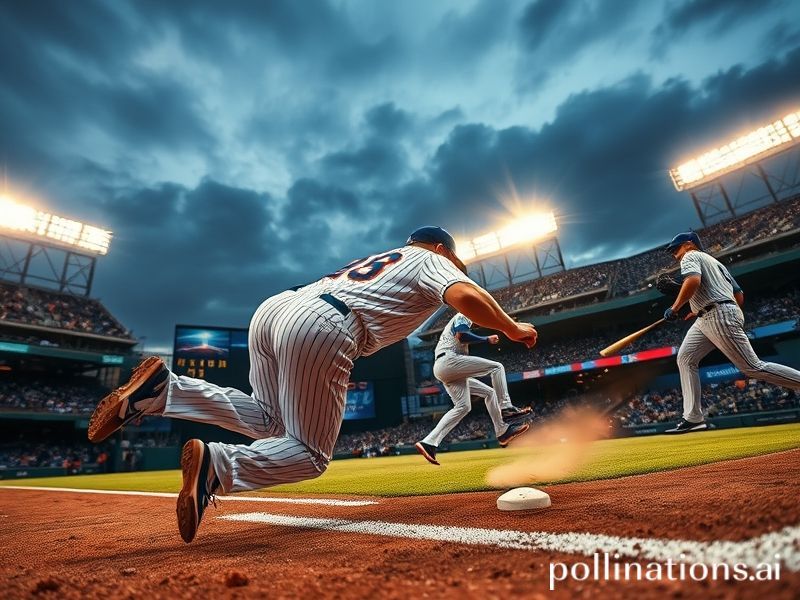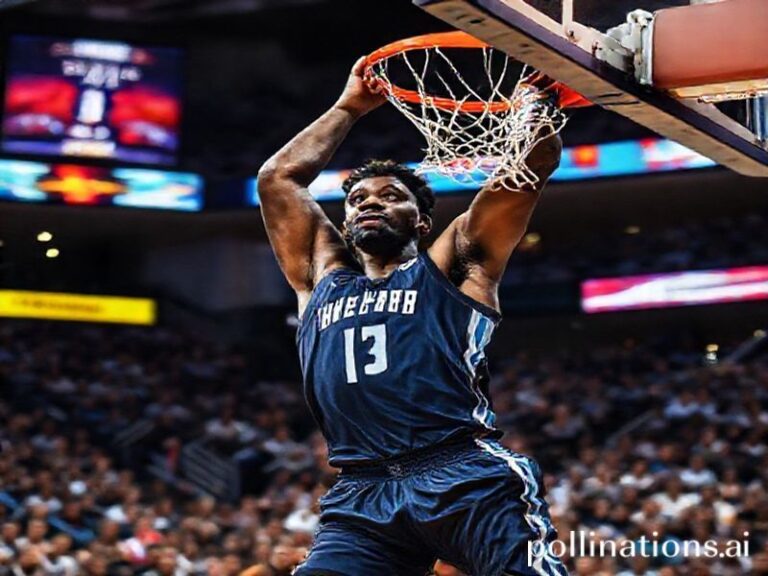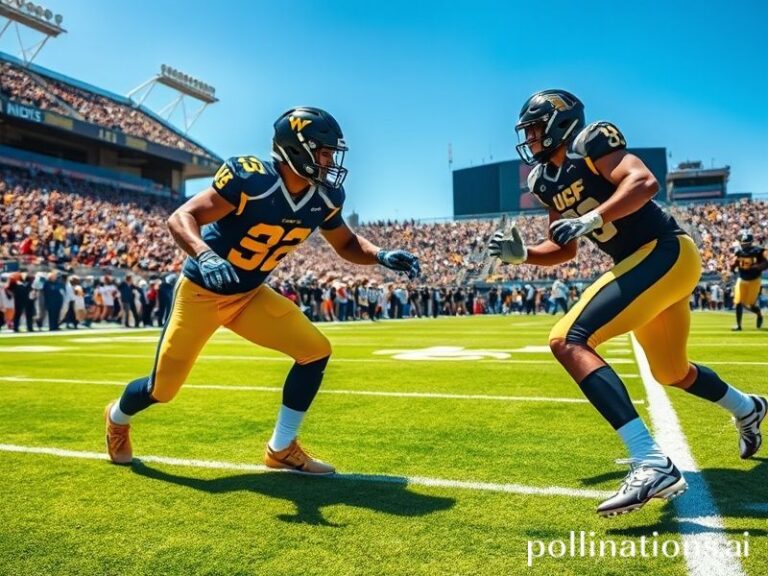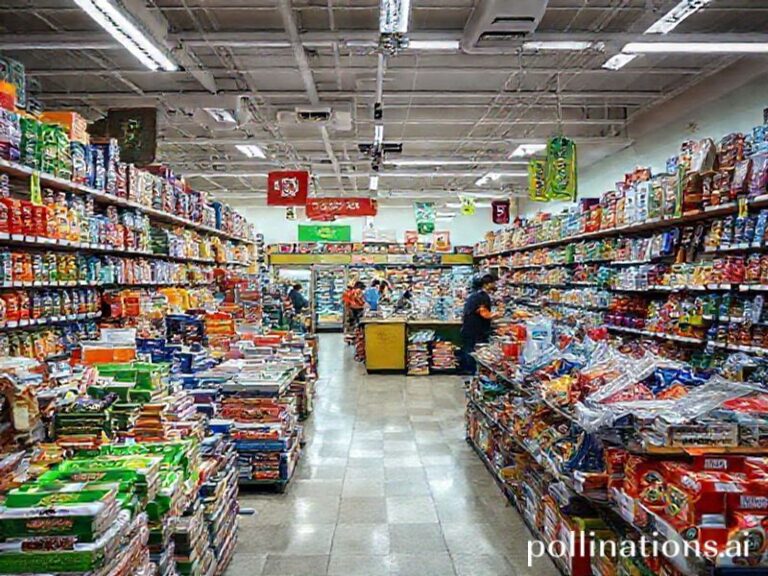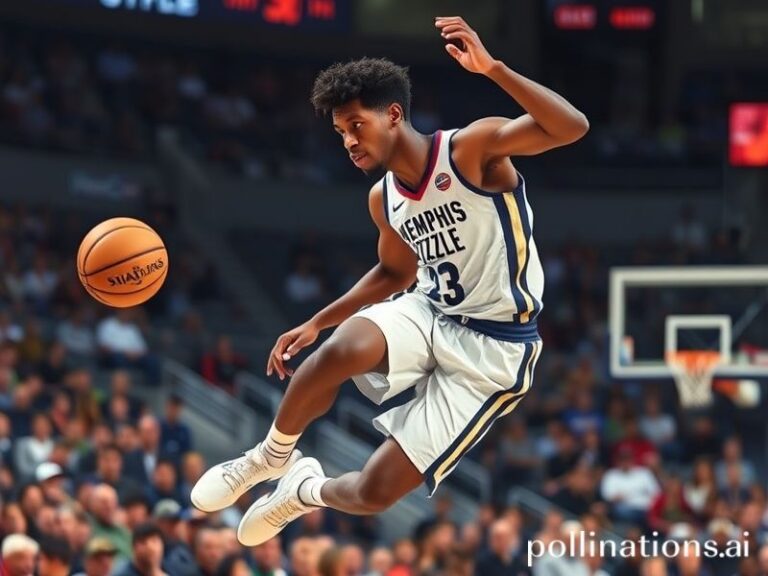When Mets Meet Cubs: A Global Trade War Fought with Curveballs and Existential Dread
The Mets and Cubs, two franchises whose combined existential angst could power a small European capital, met again last night in Queens for the kind of mid-season tilt that looks trivial on paper yet reverberates through global supply chains, foreign-exchange desks, and the fragile psyche of anyone who has ever worn a foam finger ironically. From Singapore to São Paulo, traders who normally quote yen or soybeans now also quote Nimmo OPS, because nothing says late-stage capitalism quite like a currency whose volatility tracks Pete Alonso’s launch angle.
Overseas viewers—especially the insomniac cohort in Seoul who use MLB.TV as an alternative to counting sheep—watched this particular episode of American pastoral with the detached fascination of anthropologists observing ritualistic heartbreak. The Cubs, still clinging to the 2016 championship like a faded passport stamp, sent Japanese import Shota Imanaga to the mound. Imanaga’s splitter has become a minor deity on Reddit threads from Melbourne to Mumbai, proving once again that the fastest way to world peace is a filthy pitch that drops off the table like global democracy.
Meanwhile the Mets, owned by a hedge-fund titan who could personally refinance Greece but chooses to finance bullpen meltdowns instead, countered with José Quintana—a lefty whose ERA fluctuates more wildly than the Turkish lira. Every Quintana fastball is an act of geopolitical brinkmanship; when it misses, European bond yields twitch. Analysts at Deutsche Bank quietly list “Quintana’s cutter location” as a tail-risk scenario, right between pandemic resurgence and alien invasion.
The game itself unfolded with the leisurely pace of a UN climate summit. By the fourth inning, international viewers had already watched the sun rise, updated their crypto wallets, and witnessed three separate Elon Musk tweets that moved Dogecoin more decisively than any swing in the Bronx. Yet the tension remained oddly taut: a 2-2 deadlock felt like détente, each missed scoring chance echoing the G7’s inability to agree on a Russian oil-price cap. When Francisco Lindor, sporting neon cleats visible from the International Space Station, slashed a two-run double in the seventh, the roar from Citi Field briefly spiked seismographs in Reykjavik. Somewhere, a Norwegian pension fund with a modest position on Mets playoff odds allowed itself a discreet fist pump.
The Cubs clawed one back in the eighth, because no Midwestern fan base is allowed happiness without a compensatory dose of dread. By the ninth, Edwin Díaz entered to the sound of trumpets that could summon the Four Horsemen. Díaz’s slider is so unhittable it has been sanctioned by three EU regulatory bodies. He struck out the side, the final swing coming from Dansby Swanson, whose name sounds like a minor royal who abdicated to sell artisanal gin. Final score: Mets 4, Cubs 3. The geopolitical fallout was immediate: New Zealand’s currency firmed on renewed optimism, while a boutique vineyard in Tuscany reported a run on celebratory prosecco labeled “Amazin’ Blanc.”
What does any of this mean in the grand scheme? Simply that in an era when nation-states weaponize grain and microchips, a baseball diamond remains the last neutral zone where failure is democratically distributed. The Mets will still find creative ways to torment their fan base; the Cubs will continue to market nostalgia like a sovereign export. And across the planet, insomniacs, day-traders, and accidental tourists of American despair will keep tuning in, because watching grown millionaires chase a leather sphere is somehow more comforting than watching the grown billionaires chase each other’s GDP.
In the end, the true box score isn’t runs, hits, or errors. It’s the knowledge that, somewhere on Earth, at least one human is irrationally elated and another is inconsolably crushed over events neither can control—a perfect equilibrium that keeps the globe spinning, or at least keeps the subscription numbers up. Play ball, rinse, repeat, and may your currency hedge hold until October.

